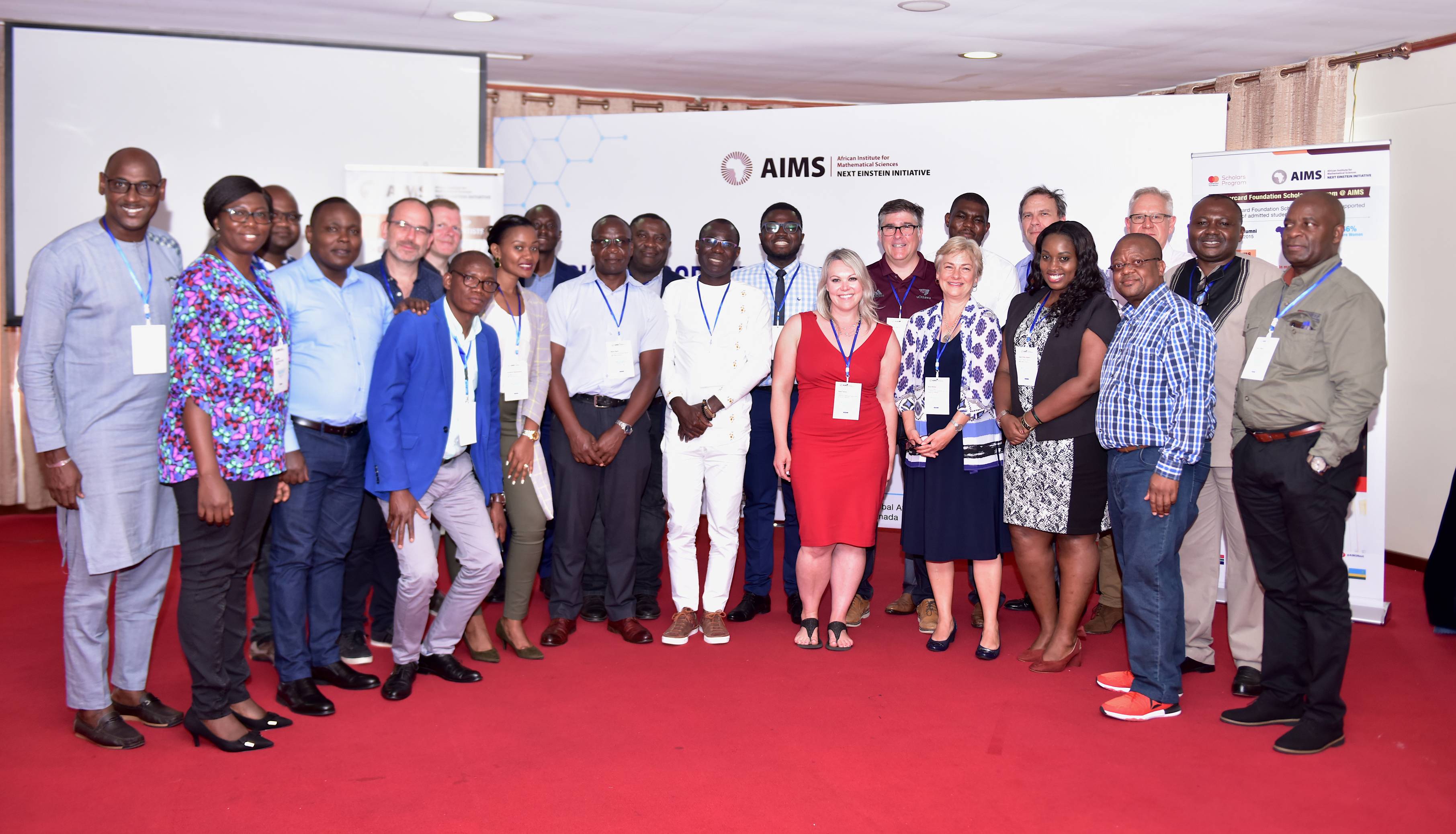International WIL: Practitioners Perspective
Anne Fannon

Photo Credit: AIMS (2019)
How did you become interested in pursuing an international opportunity?
Since I started in the field of WIL, I’ve been fascinated with understanding how WIL is operationalized in other regions and countries. This specific opportunity came to me through uWaterloo’s connection with the African Institute for Mathematical Sciences (AIMS). Our colleagues at AIMS were aware of Waterloo’s leadership in WIL, particularly with co-op education, and as such requested our assistance in supporting the evolution of their WIL Programs.
Can you provide a brief overview of the international WIL work you were involved in?
I’ve been working with AIMS for the past three years in support of their work-integrated learning initiatives. First, I had the opportunity to travel with Gaby St. Pierre from uOttawa to Senegal where we conducted a series of workshops on best practices for co-op for the AIMS network. This opportunity allowed us to better understand some of the challenges and opportunities related to the expansion of WIL within the broad context of the African continent. Then, I helped to support a delegation of AIMS staff, government and industry representatives in their visit to Canada to learn more about WIL in our context. Finally, Gaby St. Pierre, Norah McRae and I had an opportunity to travel to Rwanda where we ran our Work-Integrated Learning Institute for AIMS staff as well as government and industry representatives. We used the AAA* framework as a guide for the Institute and guided the team through an exploration of best practices in Quality WIL with extensive discussion about the specific context of each AIMS centre (located in 5 different African countries)
What were the deliverables or outcomes of the experience?
Throughout these efforts, the AIMS team identified three key strategic priorities for evolving their WIL programs. The team then worked together to develop plans for implementing these strategic initiatives.
What was the biggest take-away from your experience?
International work is hard but incredibly rewarding. It requires a continuous process of asking questions, checking assumptions and learning. We need to be so careful when working in another country that we don’t impose our structures, values or expectations on their systems. Our role is not to dictate or even to teach but rather to take what we’ve learned in our context and to explore how that might translate to other jurisdictions. That requires a lot of dialogue and a lot of listening. Even though I’ve been fortunate enough to work with AIMS for over three years, I know that I am just scratching the surface in learning about their context.
Another key takeaway for me with international work has really been a reinforcement of the really important work that CEWIL/CAFCE has played over the last fifty years in setting standards for WIL and advocating for government support. Government support for WIL cannot be overstated and we are fortunate in Canada to have established such a clear understanding of at least one form of WIL (co-op) and to have worked with government partners to support the expansion of WIL.
What advice would you give to other WIL practitioners interested in international WIL?
If you can find an opportunity to learn more about WIL in an international context -whether it’s supporting the evolution of programs, conducting a program review or even visiting institutions in other countries, I encourage you to seize the opportunity. We can learn so much about our own work by understanding how it is situated in an international context. Even if you are brought in as the “expert”, I can guarantee that you will come away having learned more than you could imagine and with a renewed sense of energy for the fantastic world of WIL.